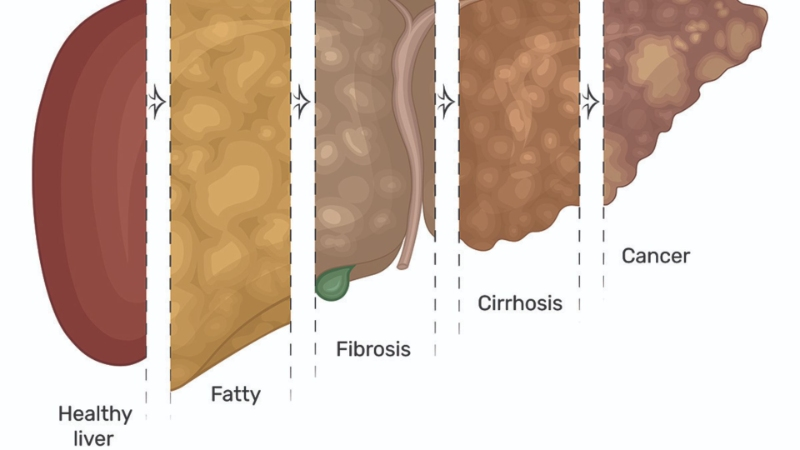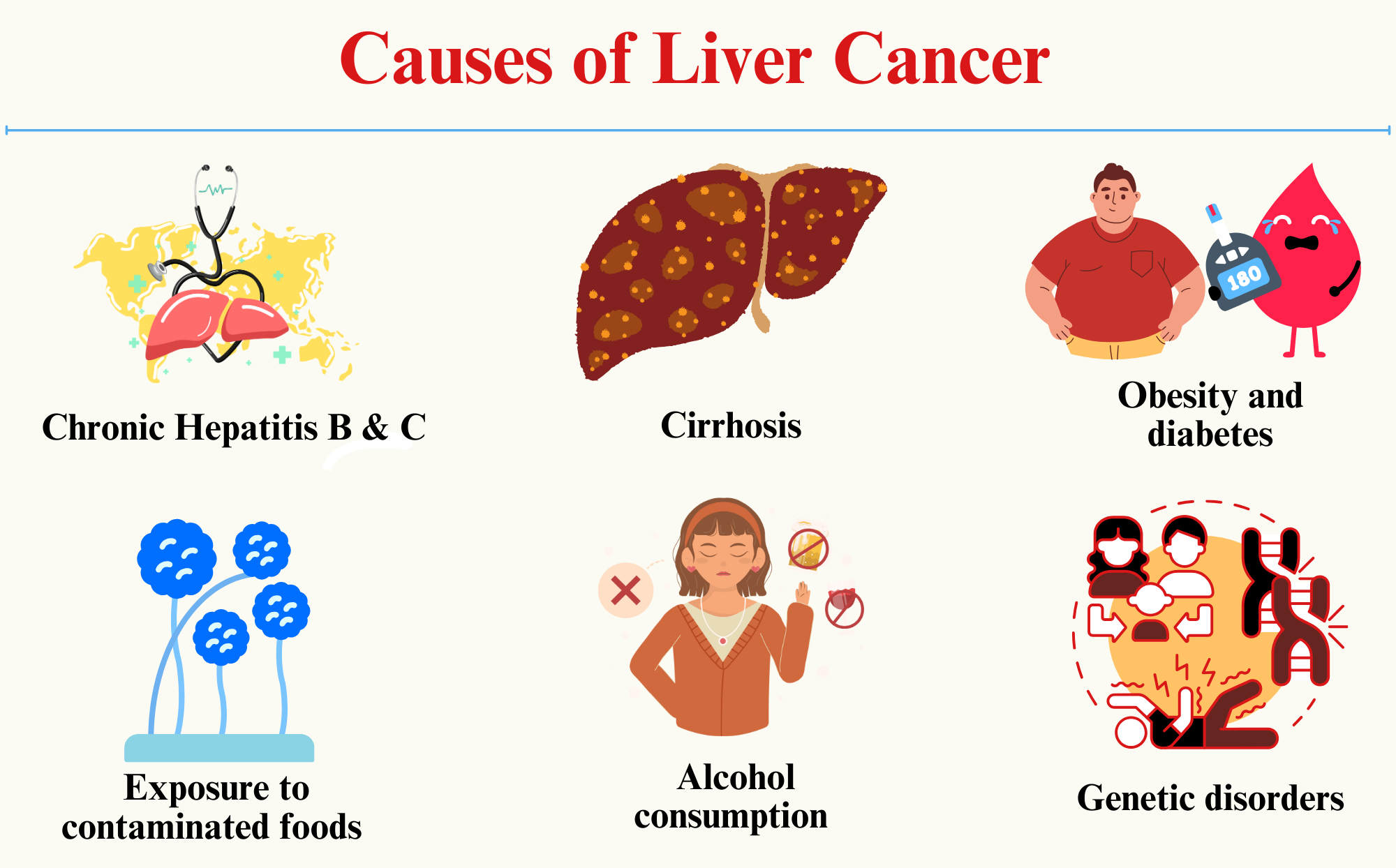
Liver Cancer - What is it and Why is it important
What is Liver Cancer & Why it is important:
Liver cancer is a malignancy that originates in the liver cells. It can be classified into primary liver cancer, which starts in the liver, and secondary liver cancer, which occurs when cancer from another part of the body spreads to the liver. The liver, being the largest internal organ, plays vital roles such as breaking down nutrients, producing bile, and filtering toxins from the blood.
Liver cancer can originate in the liver cells or bile ducts. Liver cancer is the sixth most common cancer worldwide, and the fourth leading cause of cancer-related death globally. Early detection and timely treatment are crucial for improving outcomes.
Stages of Liver Cancer:

Liver cancer is classified into four stages based on tumour size and the extent of spread:
- Stage 1: The tumour is less than 2 cm and has not spread to blood vessels.
- Stage 2: The tumour is between 2 and 5 cm and still has not spread to blood vessels.
- Stage 3: The tumour has spread to nearby blood vessels or adjacent organs.
- Stage 4: Other body components including the lungs or bones have been affected by the cancer’s spread.
Symptoms of Liver Cancer
Early-stage liver cancer often presents no symptoms, making it challenging to detect. However, as the disease progresses, individuals may experience. Common symptoms include:
- Discomfort or pain in the upper abdomen
- Swelling of the abdomen (ascites)
- Jaundice (yellowing of the skin and eyes)
- Unexplained weight loss
- Loss of appetite
- Nausea and vomiting
- Fatigue
- Easy bruising or bleeding
Complications can include liver failure, metastasis (spread of cancer to other organs), and ascites (fluid accumulation in the abdomen) which can lead to infection and other serious health issues.
Causes of Liver Cancer

Diagnosis:
To diagnose liver cancer, your doctor or specialist generally uses a combination of the following methods:
- Blood tests: To assess liver function and check for tumour markers.
- Imaging tests: Ultrasound, CT scans, and MRIs are commonly used to visualise the liver and detect tumours.
- Liver Biopsy: A small sample of liver tissue is removed and examined under a microscope to confirm the presence of cancer cells. This is typically done when imaging and blood tests are inconclusive.
- Laparoscopy: A surgical procedure where a thin tube with a camera is inserted into the abdomen to visually examine the liver and take biopsies if needed.
- PET Scan (Positron Emission Tomography): May be used to see if the cancer has spread to other parts of the body.
- Angiography: An imaging test that examines the blood vessels in the liver, useful for planning treatment if surgery is considered.
Treatment of Liver Cancer:
Treatment options for liver cancer depend on the stage of the disease and the overall health of the patient. Common treatments include:
- Surgery: If the cancer is localised, surgical removal of a portion of the liver containing the tumour.
- Liver transplant: Complete removal of the liver and replacement with a healthy liver from a donor. This is an option for patients with early-stage liver cancer and severe liver disease.
- Ablation therapies: Techniques like radiofrequency ablation or microwave ablation destroy cancer cells without removing them.
- Chemotherapy and targeted therapy: These may be used to treat advanced liver cancer or when surgery is not an option.
- Immunotherapy: This treatment helps the immune system recognise and attack cancer cells.
- Supportive care: Palliative care focuses on relieving symptoms and improving quality of life, which can be integrated with other treatments.
Prevention:
Preventive measures can significantly reduce the risk of liver cancer:
- Vaccination: Getting vaccinated against hepatitis B.
- Regular screening: Individuals with chronic liver disease should undergo regular screenings for liver cancer.
- Healthy lifestyle: Maintaining a healthy weight, eating healthy food, avoiding excessive alcohol consumption, and not smoking are crucial preventive strategies.
- Managing underlying conditions: Effective management of hepatitis infections and liver diseases.
 Back
Back